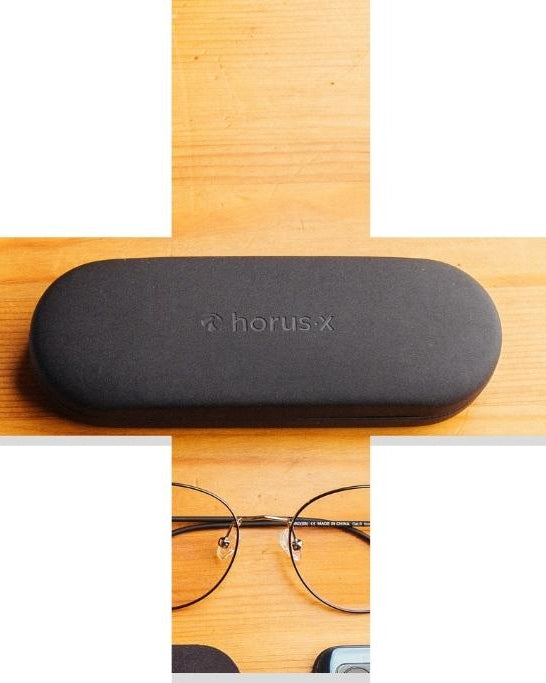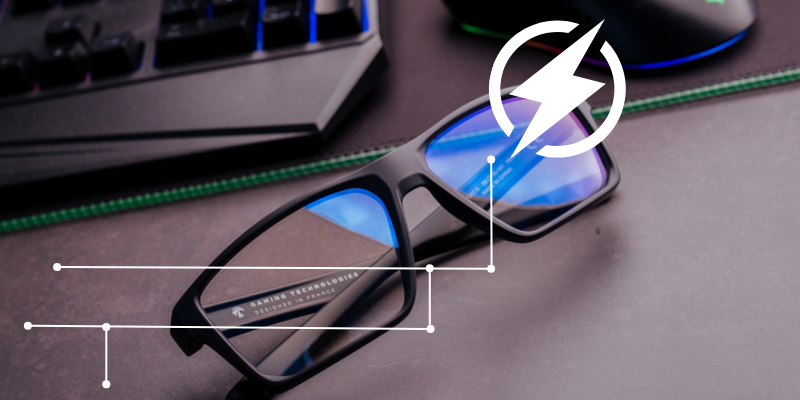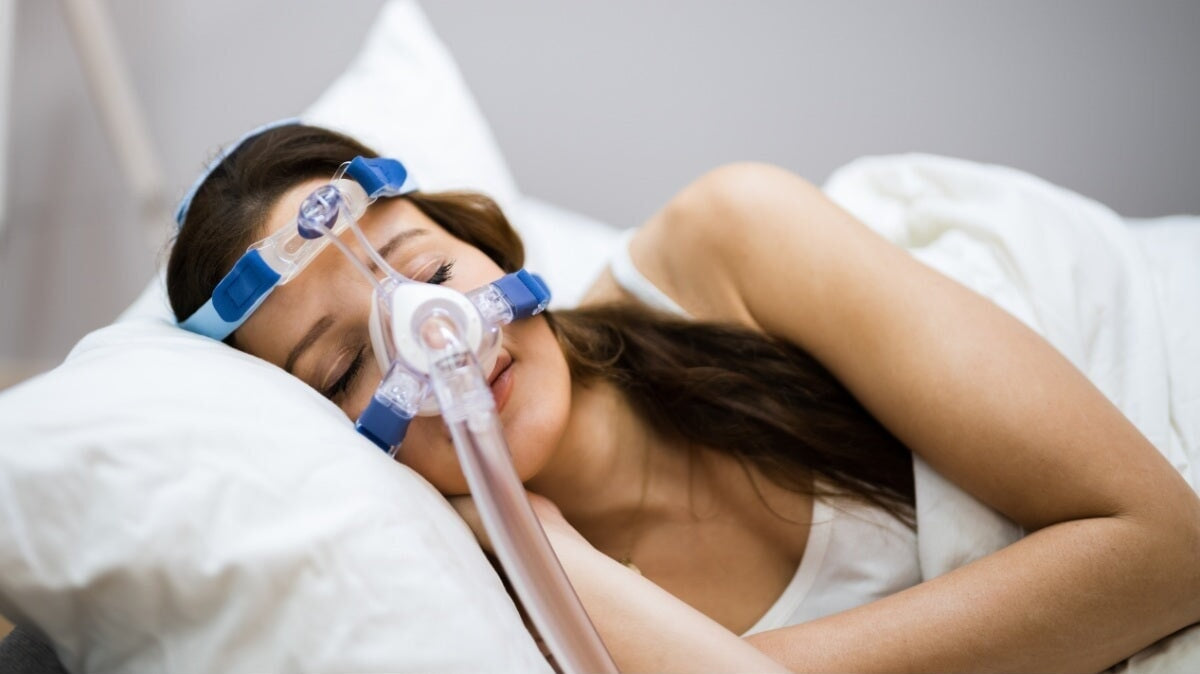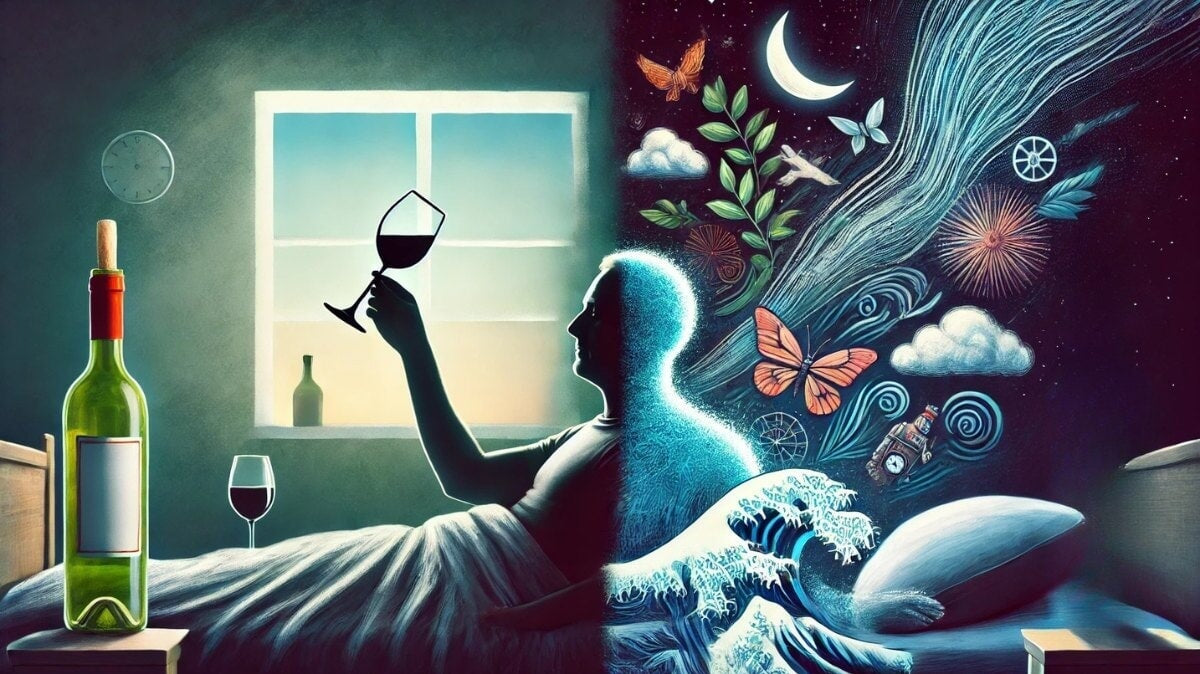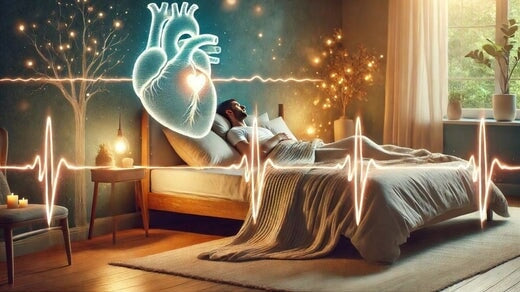All everything, you will know everything about sleep... Yes, well, the ref is dated (and probably a bit borderline), but fatigue has that effect on us! So we're pretty well placed to talk to you about sleep, aren't we?
More seriously, we are going to tackle the subject of sleep together with some crisp scientific data. REM sleep, deep sleep, rhythm and duration of sleep cycles… We explain everything to you in an article guaranteed to be 100% yawn-free!
On the agenda for this article:
- 😴 Sleep: the principles in a few lines
- 💤 Sleep cycles: definition, composition and duration
- 😪 How to improve your sleep?
Sleep: understanding the principles
So what happens at night when your eyelids are closed? Lots of interesting little things, because sleep time is far from boring! Indeed, during your sleep, several different phases will follow one another: these are called sleep cycles .
Basics
Before tackling the somewhat complex organization of sleep, let's review the basics: what is sleep, what are your needs and what are the effects of a lack of sleep on your body?
According to INSERM , sleep can be defined as “a drop in the state of consciousness which separates two periods of wakefulness . It is characterized by loss of alertness, decreased muscle tone and partial preservation of sensory perception.
In other words, when we sleep, we are less conscious, our body rests... but not necessarily our brain !
👉 It is also during the night that it would be most active, at different levels depending on the phases concerned.
Sleep and health
Getting a good night's sleep is essential for overall good health. This is what we explain to you in our super Instagram reel: why you have to sleep 😴!
If you're too lazy to watch (we've burned you...), here's a quick summary of the benefits of a good night's sleep :
- 💤 fight against fatigue (rather logical)
- 🚮 elimination of toxins
- 🙏 stress and mood regulation
- 🦠 improvement of immune defenses
- ♻️ contribution to cell renewal, especially at the nervous and muscular level
- 🧠 memory and learning stimulation
- 🩸 regulation of glycemia (blood sugar level)
- 🕵️ good level of alertness and concentration during the day
This list is not exhaustive, because a lack of sleep is also linked to the onset of certain disorders such as type 2 diabetes, obesity, high cholesterol, mood disorders, depression, learning and concentration difficulties… in short, it would be a question of sleeping!
Sleep needs
We are not all equal when it comes to sleep: some will need a lot of sleep each night, others less.
And age is one of the determining factors ! Indeed, infants will have very different sleep needs from a child, teenager, adult or senior.
- 👶 Babies need an average of 14 to 17 hours of sleep per day,
- 🧒 Children and teenagers should sleep between 9 and 11 a.m.,
- 🧑 An adult needs 7 and 9 a.m. nights,
- 🧓 Seniors sleep on average between 6 and 8 hours
Depending on your age, sleep time varies and a little reminder, screen time by age also (and there is also a link between the two, which we explain to you below 👇 )
Sleep cycle: definition, composition and duration
Definition of sleep cycle
A sleep cycle is a bit like the unit of measurement of your nights sleep : it is the oscillation between the different phases of sleep. There are 4 to 6 cycles per night, each composed of 4 very different phases and with a very particular interest.
Duration of a sleep cycle
A sleep cycle lasts an average of 90 minutes, with a composition that varies throughout the night. Specialists estimate that a good night's sleep includes between 3 and 5 successive sleep cycles.
Phases composing the cycles
Let’s take stock of the different cycles that will punctuate your night…

Phase 0: Focus on falling asleep

Let's start at the beginning, what happens during falling asleep? This stage between wakefulness and sleep lasts an average of 15 to 20 minutes and precedes the period when you are actually asleep. Our body gradually comes to rest, the muscles relax, breathing slows down and we gradually plunge into light sleep.
Several conditions are required to fall into the arms of Morpheus:
- 📉 The decrease in stimulation: the transition from awakening mode to sleep mode is based on a 24-hour rhythm (the circadian rhythm that causes our sleep to synchronize with the day/night cycle). It is therefore easy to understand why blue light can disturb sleep by making the brain believe that it is still daytime!
- ↘ Neurotransmitters (a kind of messenger for our nervous system) linked to daytime activity decrease in preparation for falling asleep.
- ↗️ The production of melatonin (the hormone of sleep and falling asleep) must be sufficient. However, it is reduced by the use of screens at bedtime. Indeed, blue light has a negative impact on the production of melatonin and therefore on falling asleep.
Once asleep, the sleep cycles are linked and break down into 3 real phases : we first enter light slow sleep , then deep slow sleep, we go back through the light slow sleep box and then we enter the REM sleep .
Your nights are therefore a long semi-quiet river!
Light slow sleep

As the name suggests, when you are in light slow sleep, you can be easily awakened. It is stage 1 of sleep (if we exclude falling asleep) where we can feel this oh so unpleasant impression that we are falling into a bottomless pit.
This feeling of falling or even the little muscle twitches are completely normal: it is the effect of the muscles relaxing and preparing for phase 2.
So there's no need to go to bed with climbing gear or cling tightly to your pillow!
Note that this light slow sleep is found at the beginning and end of each sleep cycle. This is a step that should not be disturbed if you want to avoid nocturnal awakenings.
Deep slow sleep

This is the quietest and deepest (as the name suggests) part of your nights. The body does not move and it is rather difficult to wake you up. And that's good, because deep sleep is the most restorative . It is very present at the beginning of the night to ensure optimal recovery from the fatigue accumulated during the day.
Its role is therefore to allow you to recover but also to eliminate toxins, without forgetting to sort through your memories of the day, contribute to cell regeneration and help the growth of the youngest thanks to the secretion of growth hormone. It is therefore not the soup that would make you grow, but the full nights!
And it's so effective that if you wake up in deep sleep, you'll have a hard time waking up! Similarly, if you spend an all-nighter in front of Hogwarts Legacy, the following night your sleep pattern will include more slow-wave sleep in order to recover.
This slow-wave sleep phase ultimately only constitutes less than 2 hours accumulated over the whole night , at the rate of a few tens of minutes per cycle.
REM sleep

Its name comes from the in-between in which your body finds itself: both deeply asleep with high brain activity.
This is the cycle where dreams come in , at least the ones we remember. We can observe an irregular pulse, movements of our eyes under our eyelids while the body is motionless (with the exception of a few jolts).
To know :
-
During the night, the composition of sleep cycles changes . The vast majority of the first part of your nights is made up of deep slow-wave sleep, while afterwards light slow-wave sleep and REM sleep dominate.
-
While the duration of light slow-wave sleep and paradoxical sleep vary from one person to another, that of deep slow-wave sleep is globally the same for everyone , light or heavy sleeper!
Concrete example
At Horus X we use the Oura Ring, a ring that allows you to analyze and optimize your sleep. We strongly recommend! This is what a night's sleep looks like at Paul, one of our co-founders.

We can clearly see the different cycles (5 here) with varying durations. Much more deep sleep on the first phases, more REM sleep on the following ones.
Overall, your body spends the majority of the night in light sleep. The amount of time you spend in REM or deep sleep can vary greatly from person to person, but below are the averages you can expect for each stage on a single night.
- Awakening : 2-5%
- Light sleep : 45 to 55%
- Deep sleep : 13 to 23%
- REM sleep : 20 to 25%
How to improve your sleep?
If you didn't fall asleep while reading this article, you now know how important falling asleep and light slow-wave sleep are for quality sleep and why deep sleep is essential to your health .
And one of the points on which we would like to insist is the harmful role of screens and blue light on your sleep. We often tell you, but blue light decreases the secretion of melatonin, the sleep and sleep hormone, in addition to disrupting the circadian rhythm and causing headaches and other signs of digital eye strain.
So stop scrolling in your bed! (and read a looooong file on sleeping with blue light blocking glasses , for example, it works too)
The final word: how long is a sleep cycle?
Let's recap:
✅ Good sleep, in sufficient quantity according to your needs, is essential for good physical and mental health .
✅ A night's sleep is usually made up of 4 to 6 sleep cycles, with an average duration of 90 minutes per cycle (more precisely between 1 and 2 hours).
✅ The sleep cycle itself breaks down into 3 phases : light slow sleep, deep slow sleep (the most restorative) and paradoxical sleep.
✅ To improve the quality of your sleep and avoid sleep or falling asleep problems, avoid screens before going to bed !






